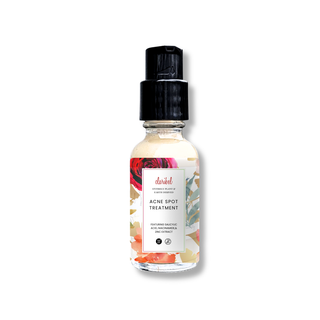
The Ultimate Guide: How to Get Rid of Dry Skin on Your Face
Dry skin on the face is a common skin condition that can be caused by various factors. It is important to understand what causes dry skin in order to effectively treat and prevent it.
Dry skin occurs when the skin is unable to retain enough moisture, resulting in a rough and flaky texture. This can be quite uncomfortable and can also lead to other skin problems such as itching and irritation.
There are several factors that contribute to dry skin on the face. One of the main causes is a lack of natural oils or lipids in the skin. These lipids are responsible for keeping the skin hydrated and retaining moisture. When the skin fails to produce enough lipids, it becomes dry and loses its natural moisture.
Other factors that can lead to dry skin on the face include environmental factors such as cold weather, low humidity, excessive sun exposure, and harsh skincare products.
Our Intense Hydration Cream will be your go to choice for natural, entirely plant derived deep hydration:
Causes of Dry Skin on the Face
There are several causes of dry skin on the face. One of the main culprits is a lack of moisture in the skin. This can be due to various factors such as weather conditions, excessive sun exposure, and harsh skincare products.
Cold weather and low humidity can strip the skin of its natural moisture, leading to dryness.
Excessive sun exposure can also dehydrate the skin, making it dry and flaky. Harsh skincare products that contain alcohol or fragrances can further exacerbate dryness by stripping the skin of its natural oils.
Another common cause of dry skin on the face is genetics. Some people are naturally prone to dry skin due to their genetic makeup.
If your parents or close relatives have dry skin, there is a higher chance that you may also develop this condition.
Hormonal changes can also contribute to dry skin on the face. During certain stages of life such as puberty, pregnancy, and menopause, hormonal fluctuations can affect the skin's ability to retain moisture, leading to dryness.
Symptoms of Dry Skin on the Face
Dry skin on the face can manifest itself in various ways, and it is important to be able to recognize the symptoms in order to effectively treat and manage this condition.
One of the most common symptoms of dry skin is a rough and flaky texture. The skin may feel tight and uncomfortable, and there may be visible flakes or patches of dry skin.
Other symptoms include itching and redness, which can be quite bothersome. In severe cases, dry skin can also lead to cracking and bleeding, especially in areas such as the corners of the mouth and around the nose.
Dry skin on the face can also make the skin look dull and lackluster. It may lose its natural glow and appear rough and uneven. In some cases, dry skin can also lead to the appearance of fine lines and wrinkles, as the lack of moisture can make the skin lose its elasticity.
If you notice any of these symptoms, it is important to take action and address the issue before it worsens.
Daily Skin Care Tips for Dry Skin on the Face
Taking care of dry skin on the face requires a consistent skincare routine that focuses on hydrating and nourishing the skin. Here are some daily skincare tips on how to get rid of dry skin on your face:
-
Cleanse gently: Avoid using harsh cleansers that can strip the skin of its natural oils. Opt for a gentle, hydrating cleanser that will cleanse your skin without causing dryness. Use lukewarm water instead of hot water, as hot water can further dehydrate the skin.
-
Moisturize regularly: Moisturizing is key for dry skin. Choose a moisturizer that is specifically formulated for dry skin and apply it generously to your face and neck twice a day, in the morning and evening. Look for moisturizers that contain ingredients such as hyaluronic acid and ceramides, which help to hydrate and repair the skin barrier.
-
Use a hydrating serum: Adding a hydrating serum to your skincare routine can provide an extra boost of hydration for dry skin. Look for serums that contain ingredients such as glycerin and vitamin E, which help to lock in moisture and nourish the skin.
-
Protect your skin from the sun: Sun exposure can further dehydrate the skin and make dryness worse. Apply a broad-spectrum sunscreen with at least SPF 30 every day, even on cloudy days. Wear protective clothing and seek shade during peak sun hours.
-
Avoid harsh skincare products: Harsh skincare products can strip the skin of its natural oils and worsen dryness. Avoid products that contain alcohol, fragrances, and other irritating ingredients. Opt for gentle and hydrating products that are specifically formulated for dry skin.
-
Stay hydrated: Drinking enough water is essential for maintaining hydrated skin. Aim to drink at least 8 glasses of water a day to keep your skin and body hydrated from within.
Our Intense Hydration Cream will be your go to choice for natural, entirely plant derived deep hydration:
Natural Remedies for Dry Skin on the Face
In addition to a proper skincare routine, there are several natural remedies that can help to relieve and prevent dry skin on the face. These remedies are often gentle and can be easily incorporated into your daily routine. Here are some natural remedies for how to get rid of dry skin on your face:
-
Honey: Honey is a natural humectant, which means it helps to lock in moisture and hydrate the skin. Apply raw honey to your face and leave it on for 10-15 minutes before rinsing off with warm water. Honey can also be mixed with other ingredients such as avocado or yogurt for added hydration.
-
Aloe vera: Aloe vera has soothing and hydrating properties that can help to relieve dryness and irritation. Apply fresh aloe vera gel to your face and leave it on for 15-20 minutes before rinsing off with cool water. You can also mix aloe vera gel with a few drops of almond oil for added nourishment.
-
Coconut oil: Coconut oil is a natural emollient that helps to soften and moisturize the skin. Apply a thin layer of coconut oil to your face and leave it on overnight. Rinse off with warm water in the morning. Coconut oil can also be used as a gentle makeup remover for dry skin.
-
Oatmeal: Oatmeal has anti-inflammatory and moisturizing properties that can help to soothe and hydrate dry skin. Mix finely ground oatmeal with water to form a paste and apply it to your face. Leave it on for 10-15 minutes before rinsing off with warm water. Oatmeal can also be added to your bath for a hydrating soak.
-
Cucumber: Cucumber has a high water content and is extremely hydrating for the skin. Slice a cucumber and rub the slices on your face for a refreshing and hydrating effect. You can also blend cucumber and mix it with yogurt for a hydrating face mask.
Best Skin Care Products for Dry Skin on the Face
Choosing the right skincare products is crucial for effectively treating and preventing dry skin on the face. Look for products that are specifically formulated for dry skin and contain hydrating and nourishing ingredients. Here are some of the best skincare products for dry skin on the face:
-
Cleanser: Our Brightening Exfoliating Cleanser is a great way to nurture dry skin on your face with entirely plant derived ingredients.
-
Moisturizer: Our Intense Hydration Cream is not only extremely hydrating, but soothing as well.
-
Serum: Our Hyaluronic & Multi Peptide Serum is an important step in day long hydration and rejuvenation.
-
Sunscreen: Our entirely plant and earth derived Mineral Sunscreen Daily Moisturizer with 25 SPF is a necessary step in protecting skin safely and preventing further dryness and sun damage.
-
Face oil: Our Sweet Dreams Restorative Night Oil is a must when it comes to hydrating and healing dry skin on your face.
Lifestyle Changes to Prevent and Manage Dry Skin on the Face
In addition to a proper skincare routine and the use of suitable products, making certain lifestyle changes can help to prevent and manage dry skin on the face. Here are some lifestyle changes to consider:
-
Humidify your environment: Use a humidifier to add moisture to the air in your home, especially during the winter months when the air tends to be drier. This can help to prevent dry skin by maintaining a more humid environment.
-
Avoid hot showers: Hot water can strip the skin of its natural oils, leading to dryness. Opt for lukewarm water when showering or bathing, and limit your shower time to no more than 10 minutes.
-
Pat dry instead of rubbing: After washing your face or taking a shower, gently pat your skin dry with a soft towel instead of rubbing it vigorously. This helps to prevent further irritation and dryness.
-
Wear protective clothing: In harsh weather conditions, protect your face by wearing a scarf or a hat that covers your face. This helps to shield your skin from cold winds and low humidity, which can contribute to dryness.
-
Avoid smoking and excessive alcohol consumption: Smoking and excessive alcohol consumption can dehydrate the skin and make dryness worse. Quit smoking and limit your alcohol intake to maintain hydrated and healthy skin.
Conclusion
Dry skin on the face can be a frustrating and uncomfortable condition, but with the right knowledge and skincare routine, it can be effectively managed and prevented. Understanding the causes and symptoms of dry skin is key to addressing the issue.
By following a daily skincare routine that focuses on hydrating and nourishing the skin, using natural remedies, choosing suitable skincare products, and making certain lifestyle changes, you can say goodbye to dry skin on your face and hello to a healthy and hydrated complexion.
-





